These Progressives Will Guide Us Through the Darkness
Without a doubt, 2025 is going to be tough—but these visionaries give us hope in this uncertain time.

The 2024 election season ended miserably, and the year ahead will be brutal as the Trump administration implements the president-elect’s anti-immigrant, anti-abortion, anti-trans, anti-science, and anti-labor agenda. This year’s Progressive Honor Roll does not deny that there are mean things happening in the land. But there is also hope on the horizon, in the form of progressive leaders and movements, breakthrough victories for labor unions and the champions of public education, courageous protests by students, and brilliant artistry from songwriters and documentarians. We celebrate them as examples of what the great thinker Rebecca Solnit taught us to search for: hope in the dark. These are some of the visionaries who will lead us out of that darkness. John Nichols
PROGRESSIVE CAMPAIGNER
Alexandria Ocasio-Cortez

“There is nothing wrong with working for a living. Imagine having leaders who understand that,” Representative Alexandria Ocasio-Cortez declared in one of the most well-received speeches at the Democratic National Convention. The delegates cheered—not only for the progressive New Yorker’s rousing appeal on behalf of a more centrist Democrat, Kamala Harris, but also for a congresswoman who proudly recalled that she was working as a bartender in New York City before her 2018 election to the House as a 29-year-old insurgent.
Along with her close ally, Vermont Senator Bernie Sanders, Ocasio-Cortez hit the fall campaign trail for Democrats in races from Texas to Wisconsin. Her appearances drew large and diverse crowds that recognized her as a savvy advocate for the bolder messaging that the party’s national ticket needed to adopt, including support for a ceasefire in Gaza, Medicare for All, and a Green New Deal. That turnout speaks to young voters’ passionate desire for a real response to the climate crisis as well as an economy that works for them.
At a time when Harris’s defeat has Democrats struggling to figure out how to better connect with workers in general and young workers in particular, Ocasio-Cortez recognizes the need for her party to engage disenchanted voters with stances on issues—and fresh tactics—that are feared by a consultant class that clings to strategies that appeal to big donors but not to voters. Ocasio-Cortez is going to keep pushing Democratic insiders beyond their comfort zones.
TECH-SAVVY SENATOR
Lisa Blunt Rochester
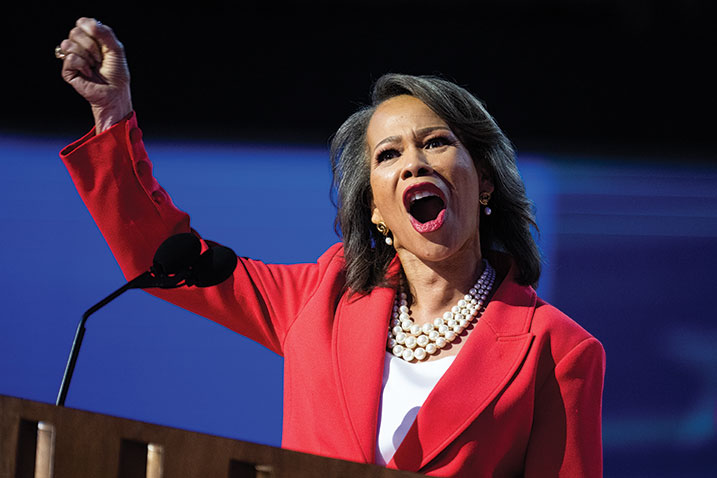
A former Delaware secretary of labor, Lisa Blunt Rochester recognized years ago that the United States was failing to look out for workers affected by rapidly developing generative AI and blockchain technologies. A member of the Congressional Progressive Caucus who focuses on workers’ rights issues, Blunt Rochester helped create the bipartisan Future of Work Caucus in the House. Now she’s headed to the Senate after prevailing in an election that also sent Maryland Democrat Angela Alsobrooks to Capitol Hill, making this the first time in US history that two Black women will serve together in the chamber.
Blunt Rochester has her work cut out for her in a new Congress where conservative Republicans hold the majority. But her campaign message has the potential to cross party lines in an age of anxiety over technological changes that will transform everything about the way we work, learn, and live. “These emerging fields bring fantastic opportunities for small businesses and the economy but without proper guidelines, harm Americans,” her campaign website noted, recognizing concerns about the displacement of workers in the rush to transform industries. Blunt Rochester favors “an approach that allows American innovation to flourish, protects consumers, workers, and businesses, and makes clear what the rules are.” Those rules must protect workers of all backgrounds, not just CEOs and wealthy investors.
STAR DEBATER IN THE HOUSE
Jasmine Crockett

Republicans maintain control of the House by a narrow margin. That means that Democrats, especially progressive Democrats, will need to be masterful advocates in order to be heard. That’s no problem for Texas Representative Jasmine Crockett. Since her election in 2022, Crockett has gained national recognition—and a huge social media following—as a Democrat who’s not afraid to call out right-wing fever dreams. The lawyer and former Texas legislator has emerged as one of the most knowledgeable and outspoken members of the House Oversight Committee—and has created more than her share of viral moments. One of them came when conservatives organized a hearing to attack diversity, equity, and inclusion programs; Crockett suggested that what frightened some of her Republican colleagues was the prospect that progress toward a more just and equitable society might make it harder for “a simple-minded, underqualified white man” to elbow aside the competition. When Crockett was reelected in November with 85 percent of the vote, she announced: “Let the MAGA tears flow! About 7 mins after the polls closed, the race was called for me! I’m heading back to DC!”
NECESSARY GUBERNATORIAL RESPONSE TO TRUMP
JB Pritzker
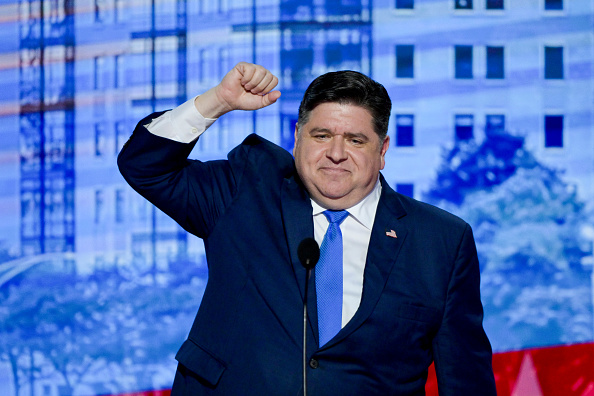
Democratic governors—and perhaps even a few of their more enlightened Republican colleagues—will form a bulwark against the worst abuses of a Trump presidency. Illinois Governor JB Pritzker, whom the University of Chicago Institute of Politics says “may be the most surprisingly high-profile progressive governor in the nation,” can be expected to meet the challenge with Chicago-style bluntness. “You come for my people, you come through me,” the governor declared. Speaking at a news conference just two days after the election, he detailed how his administration and its legislative allies had already taken “proactive steps” to defend abortion rights from a federal assault, explained plans to take legal and legislative action to address threats to aid for Illinois and other blue states, and promised to defend vulnerable communities, including immigrants, that will come under assault from Republican-controlled Washington. Already in contact with fellow Democratic governors, Pritzker said, “We have like minds about protecting certain rights and making sure that we’re going to be able to withstand four years of a Donald Trump presidency.”
DEMOCRATS’ BEST POLICY INNOVATION
Making Care Central to the Party’s Message
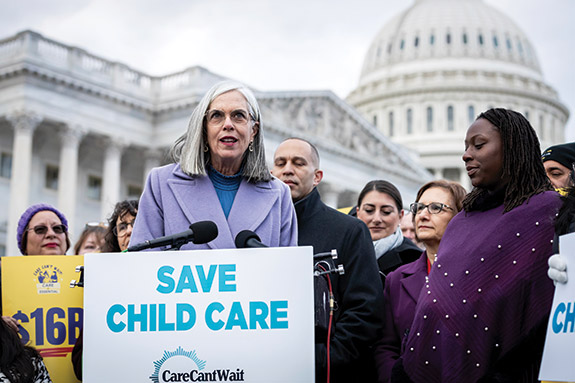
Kamala Harris had only 107 days to mount a presidential campaign. She did not succeed, and she’s faced criticism for how her campaign underplayed appeals to working-class voters and failed to take a stance against Israel’s assault on Gaza. But there were many proposals that Harris got right. One that should have received more attention was her sweeping plan to expand Medicare by creating a home-care benefit. The plan would have dramatically increased options for older and disabled Americans while assuring that caregivers, be they paid or unpaid, finally got a fair shake. Harris and the Democrats could have talked more about this agenda during the campaign, but they laid the groundwork for a future in which the project is a central part of the Democratic platform. As Ai-jen Poo, a senior adviser to Care in Action, reminds us, investment in care benefits more than just those who receive it—it also benefits those who provide it. Indeed, Poo says, “these are the kinds of investments that would help families participate and stay in the workforce and realize the promise of opportunity in America.”
ELECTION-YEAR INTERVENTION
The Uncommitted Movement
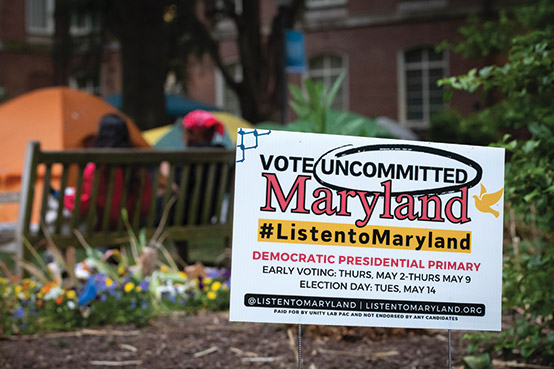
President Biden’s failure to demand an end to Israel’s assault on Gaza put him on the wrong side of many Democratic voters during his early 2024 bid for reelection. To send a message to Biden about the need for an arms embargo to save lives in Gaza and move toward peace in the Middle East, the Listen to Michigan movement mounted a campaign that persuaded more than 100,000 voters to choose an “Uncommitted” option on the Democratic primary ballot. Activists in other states promptly picked up the baton, aligning under the banner of the Uncommitted National Movement. The movement won dozens of delegates to the Democratic National Convention and was credited with convincing the White House to adopt a somewhat more critical tone toward Israel.
Despite these successes, the movement was rebuffed in its efforts to secure a speaking slot for a Palestinian American at the convention. That was a consequential error on the part of convention organizers. In the fall, while some prominent activists said they’d vote for Harris, the movement declined to formally endorse her but warned allies to avoid voting in ways that might help elect Trump. The movement isn’t going away. It will keep urging top Democrats to listen to the party base as part of a struggle to end the violence in Gaza, save lives, and defend against the threats posed by a Trump presidency.
DEFENSE OF PUBLIC EDUCATION
Governor Andy Beshear and the Kentucky Education Association
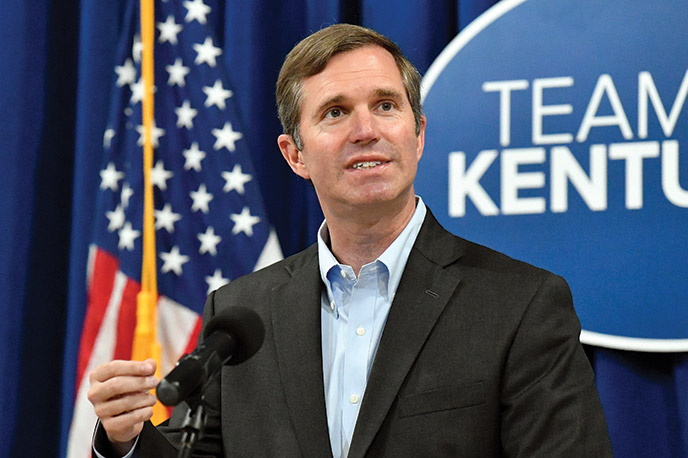
Donald Trump won Kentucky by a 30.7-point margin. But public education won even bigger: A proposal to revise the Kentucky Constitution to allow legislators to allocate tax dollars to private schools was beaten by a slightly wider margin. The amendment was backed by Senator Rand Paul and other top Republicans, while Democratic Governor Andy Beshear vowed, “I’m going to do everything I can to defeat it.” The Kentucky Education Association and its allies prevailed in every one of the state’s 120 counties. It turns out that standing strong for public education is a winning position—in blue, purple, and red states.
TRADE UNION LEADER WHO WON’T BACK DOWN
Jimmy Williams Jr. of IUPAT
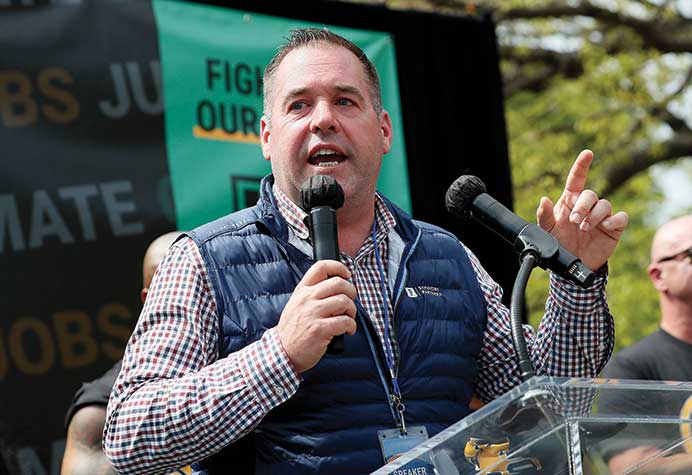
The International Union of Painters and Allied Trades, which represents 140,000 workers, has a well-earned reputation for political savvy and progressivism. Both were on display in 2024.
IUPAT president Jimmy Williams Jr. and his members campaigned hard for Harris—alongside other unions and union leaders—and their work paid off, with the Democratic ticket winning levels of support among union members that were comparable to what Biden received in 2020. But the Democrats still lost, because, Williams argues, they did not mount a campaign that connected with nonunion workers. “[The] Democratic Party has continued to fail to prioritize a strong, working class message that addressed issues that really matter to workers,” Williams said shortly after Harris’s defeat. “The party did not make a positive case for why workers should vote for them, only that they were not Donald Trump.”
Popular
“swipe left below to view more authors”Swipe →This is the kind of blunt talk that Democratic leaders need to hear. It is also typical of Williams and his union, which was one of the first to call for a ceasefire in Gaza and is exploring how to divest the IUPAT pension fund from firms that facilitate violence against Palestinians. On these issues and so many others, Williams says of the union: “We’re not gonna back down.”
BRILLIANT LEGAL ADVOCATE DEFENDING TRANS FREEDOM
Chase Strangio

On December 4, Chase Strangio, a lawyer with the American Civil Liberties Union, made history in the fight for trans rights. Appearing before the Trumpified Supreme Court in the case of United States v. Skrmetti, he argued that denying people access to gender-affirming care violates the 14th Amendment because it is sex discrimination based on transgender identity. One of the most important cases of the current court term, Skrmetti could have wide-ranging implications for a population that was targeted by Trump and the Republicans during an election in which they won control of the White House, the Senate, and the House of Representatives.
Strangio is the first openly transgender lawyer to have argued before the Supreme Court, and he “brings to the lectern not only brilliant constitutional lawyering, but also the tenacity and heart of a civil rights champion,” says Cecillia Wang, the ACLU’s legal director.
It is with such tenacity and heart that, in a recent Instagram Live, Strangio reminded us to continue to hold space and care for one another. It’s how we survive. Regina Mahone
PUSHBACK AGAINST CHRISTIAN NATIONALISM
Rev. William Barber II and the New Haven Declaration
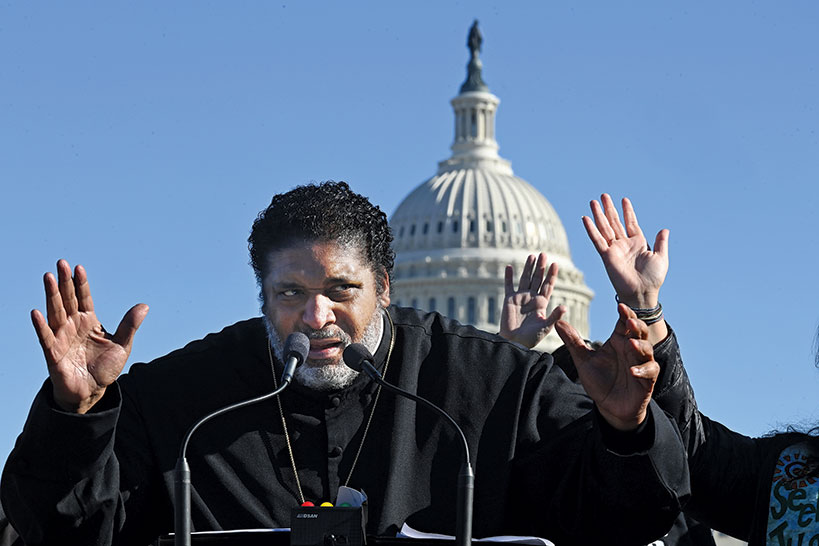
Polls show that more than half of Republicans sympathize with Christian nationalism, and prominent GOP figures embrace the movement, which seeks to transform the United States into an explicitly Christian nation. Georgia GOP Rep. Marjorie Taylor Green bluntly argues that Republicans “should be Christian nationalists.” But faith leaders from across the theological spectrum—including many devout Christians—believe that freedom of religion is best maintained through the separation of church and state.
Earlier this year, the Rev. William Barber II, a longtime pastor in the Disciples of Christ Church, NAACP leader, and cochair of the Poor People’s Campaign, joined leading preachers and academics in pushing back against Christian nationalism with the groundbreaking New Haven Declaration of Moral & Spiritual Issues in the 2024 Presidential Election. The statement asserted: “We know that a well-funded, coordinated political movement has co-opted our faith tradition and is exploiting so-called ‘traditional values’ to undermine democracy and divide people across this land. This distorted religious nationalism has persuaded many well-meaning Christians to focus on a narrow set of divisive cultural wedge issues while ignoring the real moral issues that are at the heart of our Scriptures and tradition.”
The declaration has been signed by more than 3,200 supporters, who will keep preaching the truth in 2025.
ADVOCATE FOR OUR RIGHTS
Cecile Richards
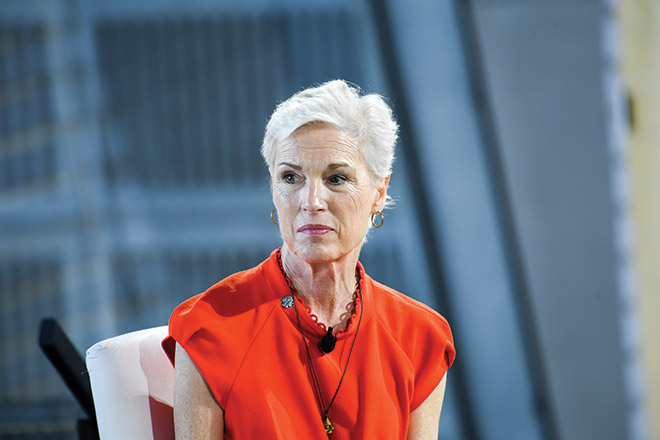
In 2018, Cecile Richards stepped down from her 12-year tenure as president of Planned Parenthood and, with domestic workers organizer Ai-jen Poo and Black Lives Matter leader Alicia Garza, promptly cofounded Supermajority to channel the energy of women voters to push back against Trump’s agenda. But in 2022, the Supreme Court’s Dobbs decision eliminating the constitutional right to abortion drew Richards back into abortion activism. She started to gather the stories of women who nearly died—as well as some who did—because abortion access has been curtailed and launched the innovative multimedia project “Abortion in America” to share those stories. Richards brought that message to the Democratic National Convention, where she declared, “When women are free to make our own decisions about our lives and follow our dreams, we are unstoppable. But when Roe v. Wade was overturned, a generation of young people lost that freedom.” And in November, President Biden awarded Richards the Presidential Medal of Freedom to honor her leadership role in “some of our most important civil rights causes.”
Even as she wages a personal battle against glioblastoma, an aggressive form of brain cancer, she’s been rallying activists since the election and telling them, “I believe with all my heart that ultimately, the right of every person to determine their own lives and futures will prevail.” When it does, we’ll all owe a huge debt to Cecile Richards. Joan Walsh
TRANSPARTISAN THINK TANK
The Quincy Institute for Responsible Statecraft

Five years ago, Andrew Bacevich and Trita Parsi launched the Quincy Institute to counter the seemingly permanent consensus for war among Washington’s elites. Quincy still has a long way to go in that mission—but in only its fifth year, it has established itself as a respected, influential, and genuinely transpartisan think tank that brings together allies across political lines to challenge mindlessly militaristic foreign policy. The institute advances concrete ideas for shared global leadership, diplomacy, restraint, and commonsense alternatives to the failed policies of US supremacy. Its new wave of academics, veterans, and policy experts is trying to upend the groupthink on American exceptionalism, playing David to the establishment’s Goliath. As Trump begins a second term by staffing the State Department with hawks and proposing to meddle even more aggressively in military affairs, Quincy’s steady advocacy for a saner worldview will be more necessary than ever. Katrina vanden Heuvel
IN MEMORIAM
Labor Strategist and Writer Jane McAlevey
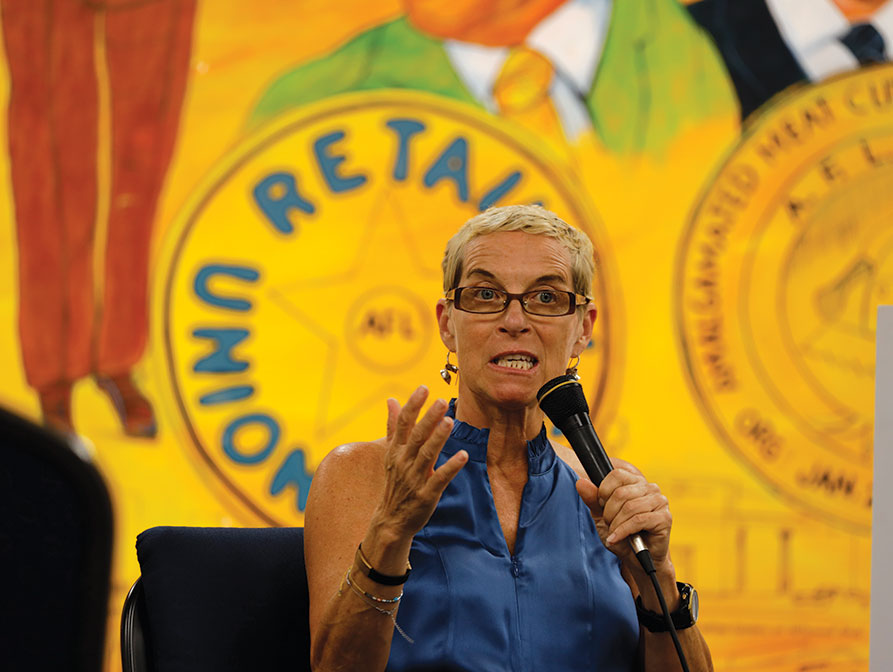
Like everyone else with more than a passing interest in American unions, I was inspired by Jane McAlevey’s activism and writing. My copy of Raising Expectations (and Raising Hell), a no-holds-barred account of her adventures in successfully reviving a moribund local of the Service Employees International Union—only to run aground on the SEIU leadership’s cozy relationship with corporate bosses—was beginning to physically fall apart when we began the ongoing conversation that would eventually lead to her hiring as The Nation’s strikes correspondent. McAlevey was a tireless, brave, and inspiring organizer whose expertise made her the perfect interpreter of this moment, when unions are finally fighting back after years in the doldrums. And her obsession with winning was contagious. McAlevey’s death in July, at age 59, has robbed us of her insights on labor’s ongoing resurgence. But if there’s a heaven, the bosses better look out. Rest in power, Jane. D.D. Guttenplan
DOCUMENTARY FOR THE ERA
Union

Jeff Bezos may be more powerful than ever after The Washington Post—a newspaper the billionaire supposedly purchased in order to prevent democracy from dying “in darkness”—made the shocking decision not to endorse Kamala Harris over Donald Trump. But there are still bold Americans who, though they lack the wealth and power of the 1 percent, are willing to stand up to bullies and autocrats.
The filmmakers Stephen Maing and Brett Story document some of these brave activists and their efforts in Union, which recounts the struggle of the Amazon Labor Union to take on the empire that Bezos built on the backs of his employees—workers who have been used and abused in the dark satanic warehouses of America’s postindustrial age. This is essential viewing, as was recognized by the judges at the Sundance Film Festival, who awarded Union a special jury award. Yet, it has not gotten a major studio or streaming deal. So, “recognizing the difficulties faced by political documentaries in distribution of late,” the filmmakers have launched a theatrical distribution campaign. Go to unionthefilm.com to learn more about how to watch their documentary. It’s brilliant.
SONG FOR RAGING OUT
Macklemore’s “Hind’s Hall”

At a point when campuses were cracking down on student protests in solidarity with Gaza, when Republican leaders in Congress were attacking university presidents who tolerated even modest dissent, and when too many media outlets were smearing students for objecting to what the International Court of Justice would determine was a “plausible” case of genocide, the Seattle rapper Macklemore released the year’s most powerful protest song. “Hind’s Hall” highlights the demands made by students at Columbia University and on many other campuses: that colleges and universities divest from firms with ties to the Israeli military. “What is threatening about divesting and wanting peace?” Macklemore asks. At least some people were listening: The song climbed high on music charts around the world, and Tom Morello, the guitarist for Rage Against the Machine, wrote, “Honestly, Macklemore’s ‘Hind’s Hall’ is the most Rage Against the Machine song since Rage Against the Machine.”
More from The Nation
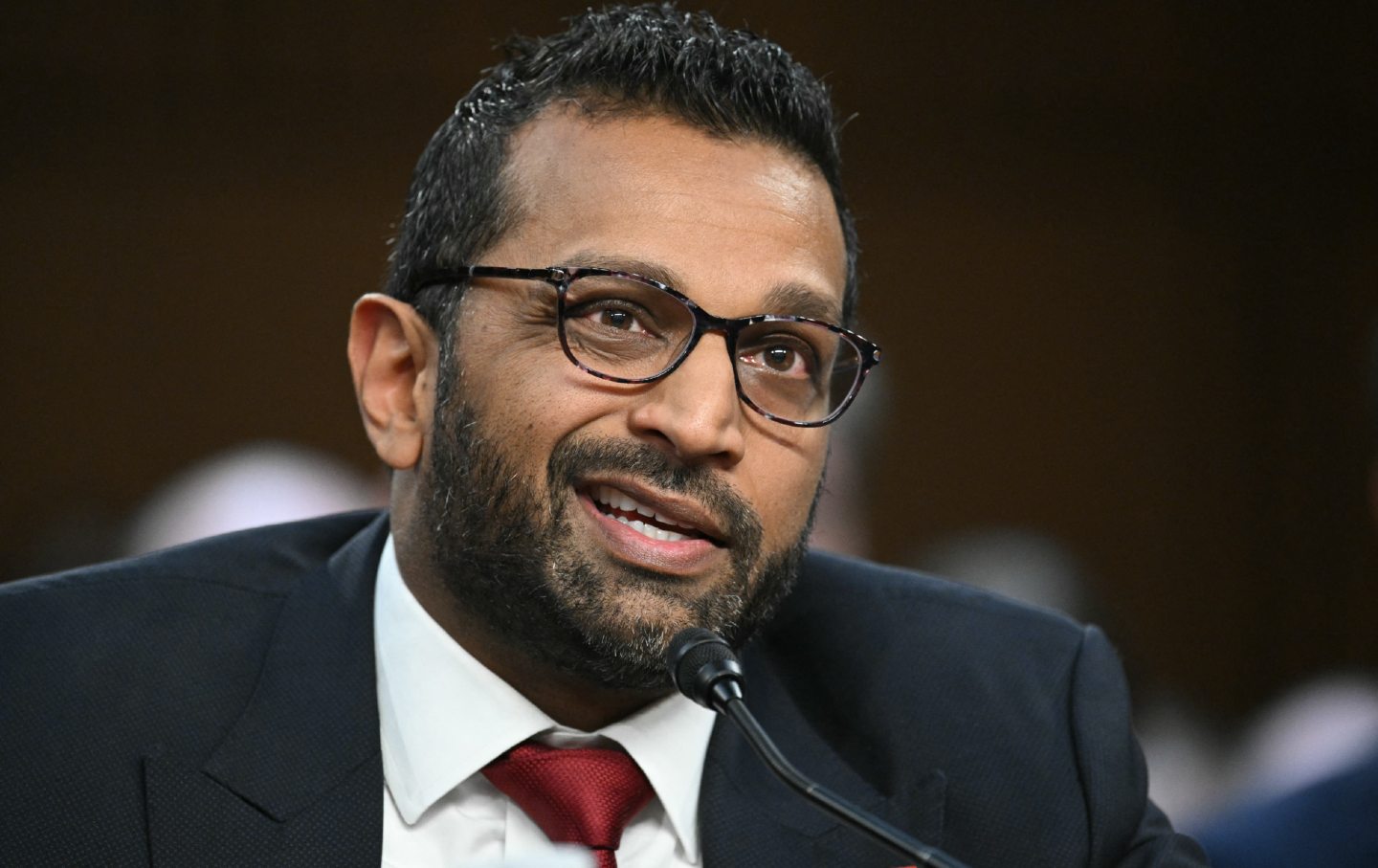
A Half Century of Failure to Reform the FBI Has Gifted Patel With Alarming Power A Half Century of Failure to Reform the FBI Has Gifted Patel With Alarming Power
Fifty years ago, lawmakers started lifting the lid on the shocking abuses of the new Bureau chief’s most famous predecessor. The trouble is, very little changed.
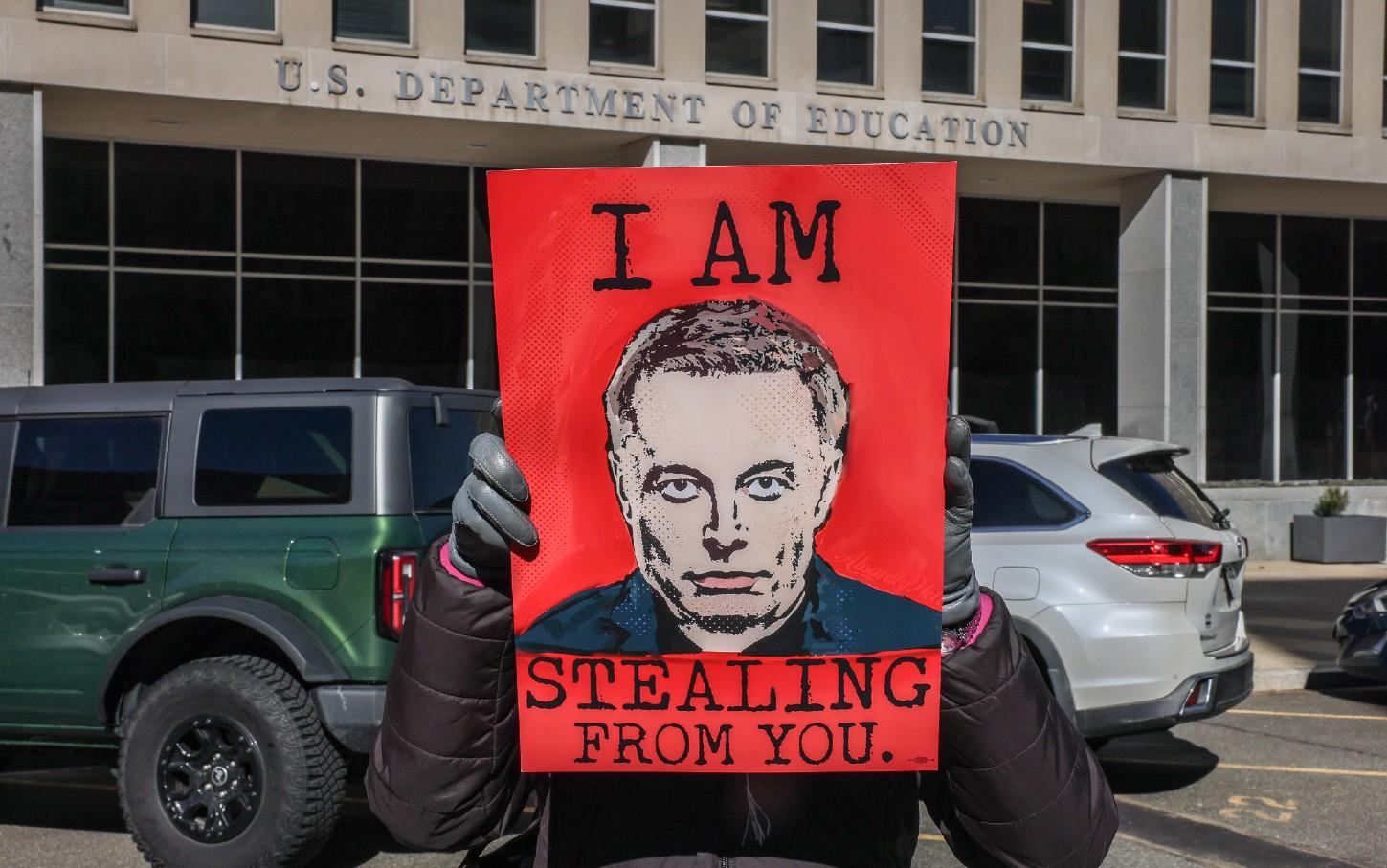
Why Hasn’t Trump Already Closed the Department of Education? Why Hasn’t Trump Already Closed the Department of Education?
Maybe because its support for students is popular with Republicans as well as Democrats. And because cutting that funding would blow a big hole in the budgets of red states.

Shield Laws Are the Fault Line in the Battle Over Abortion Access Shield Laws Are the Fault Line in the Battle Over Abortion Access
New York’s shield law was designed to protect providers mailing medication abortion pills out of state. But a New York provider is facing legal action in Louisiana and Texas.

Javier Milei’s Crypto Scandal Is Part of a Larger Network of Grift and Graft Javier Milei’s Crypto Scandal Is Part of a Larger Network of Grift and Graft
The Argentinian president faces impeachment charges for endorsing a crypto rug pull, via the same network that apparently launched Melania Trump’s memecoin.

The “Teenage Dream” in an Era of Isolation The “Teenage Dream” in an Era of Isolation
Curfew restrictions and the policing of public spaces prevent teens from “getting into trouble.” But to some, it feels like it’s preventing them from getting anywhere at all.
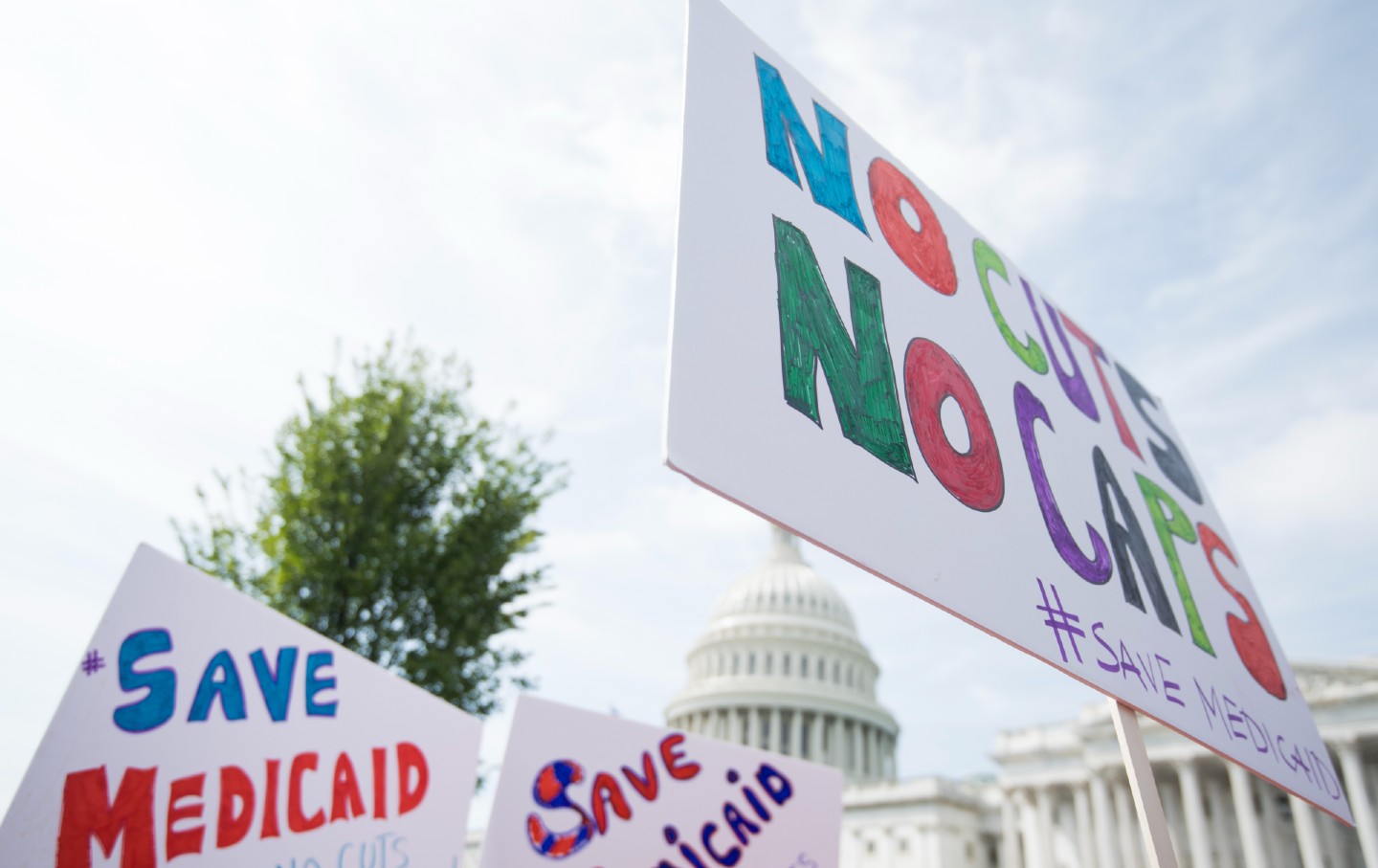
Donald Trump’s Next Diversity Target: People With Disabilities Donald Trump’s Next Diversity Target: People With Disabilities
The president’s disdain for disabled people—and obsession with genetic superiority—harks back to a grim past.


